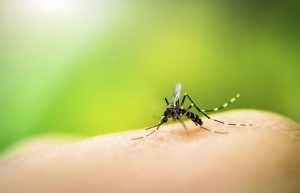
The U.S. Ob-Gyn group supports the Zika virus travel precautions set out to protect pregnant women from traveling to countries stricken by the Zika virus. Pregnant women are at high risk of contracting the Zika virus, which can lead to birth defects. Countries affected include Central and South America and the Caribbean.
In Brazil last year thousands of babies were born with microcephaly, a brain disorder linked to the Zika virus. Babies born with this condition have abnormally small heads, which can lead to developmental issues, even early death.
The American College of Obstetricians and Gynecologists (ACOG) urges pregnant women to steer clear of countries with the Zika virus based on the warnings presented by the Centers for Disease Control and Prevention (CDC).
ACOG President Dr. Mark DeFrancesco said in a news release, “Travel to regions with ongoing Zika virus outbreaks is not recommended for women who are pregnant or women who are considering pregnancy.”
The original list of countries on the CDCs list includes Brazil, Colombia, El Salvador, French Guiana, Guatemala, Haiti, Honduras, Martinique, Mexico, Panama, Paraguay, Suriname, Venezuela, and Puerto Rico. They have since added Barbados, Bolivia, Ecuador, Guadeloupe, Saint Martin, Guyana, Cape Verde, and Samoa.
DeFrancesco added, “There is much that we do not yet know about the Zika virus and its effects during pregnancy, for example whether pregnant women are of greater risk of infection than non-pregnant individuals. However, because of the associated risk of microcephaly, avoiding exposure to the virus is best. That’s why pregnant women and women who are considering pregnancy should delay planned travel to areas where Zika virus outbreaks are ongoing.”
“Women traveling to areas where Zika virus has been reported should take all precautions to avoid mosquito bites, including covering exposed skin, staying indoor- or screened-in areas, and using EPA-approved bug spray with DEET (which is safe for use during pregnancy). Because there is no treatment for Zika virus at this time, women should be counseled about all options available to them. When possible, delivery at a center with the appropriate levels of neonatal expertise may be warranted,” he added.